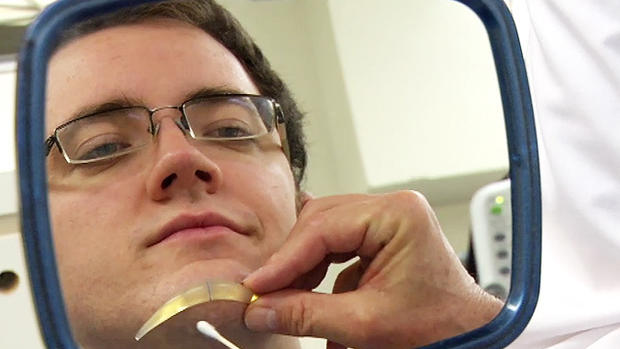Facial plastic surgery won't make you more attractive to others, study suggests
Plastic surgery on your face may not make you look more attractive or younger to others, a new study has revealed.
Researchers asked 50 strangers to guess the age of 49 patients before and after they underwent facial surgical procedures. Then, the strangers were asked to assign the patient a number from 1 to 10 based on their attractiveness.
The researchers discovered while plastic surgery did take off a few years from the patient's perceived age, it did not make them any more attractive to observers.
"When we're doing this kind of surgery I'm telling patients that they'll look fresher, more energetic and less tired, and we have some data in the literature that indicates you will look younger, as we found," Dr. Joshua Zimm, an attending surgeon at Lenox Hill Hospital and Manhattan Eye, Ear and Throat Institute of North Shore-LIJ Health System in New York City, told HealthDay. "But clearly I cannot say that they will look more attractive," added Zimm, the lead author of the new study.
According to the 2012 Plastic Surgery Statistics Report by the American Society of Plastic Surgeons, eyelid surgery and facelifts are the third and fifth most popular cosmetic surgical procedures, respectively. About 204,000 people had their eyelids retouched in 2012, up four percent from 2011. Facelifts went up 6 percent from the previous year, with about 126,000 people going under the knife to tighten the skin on their face.
- Upper arm lifts up 4,000 percent thanks to women who want arms like Michelle Obama
- Chin implant surgery rates rise 71% since 2010: Why?
The patients involved in the study had a facelift, neck lift, upper or lower eyelid lift and/or brow lift completed at a Toronto private-practice between 2006 and 2010. Their ages ranged from 42 to 73 years old.
Photos were taken before the surgery and during a six-month follow-up period after the procedure. The patients were not allowed to wear makeup, jewelry or have additional cosmetic procedures (like Botox or laser skin resurfacing) done during the time they were being photographed.
Randomly enrolled strangers either saw pre or post-surgery photos of the patients. They based their judgments on attractiveness solely on their personal preference. Most of the subjects scored between a 4 and 6 on the 10-point scale.
On average, subjects though patients were 2.1 years younger than their actual age before surgery and 5.2 years younger after their procedures, for an average of about three years younger than their perceived age.
Zimm noted some study limitations, like asking the subjects to guess the age and attractiveness of a person may have created a "subconscious attractiveness bias." He also would like to revisit the study with a larger sample group and focus on attractiveness only to see if that would make a difference in the results.
Dr. James M. Stuzin, a Miami plastic surgeon who specializes in face-lifts who was not involved in the study, pointed out to the New York Times that the study was flawed because it didn't specify how skilled the surgeons were or what techniques were used.
"Definitely technique and a surgeon's skill level influences results," he said.
The study was published on Aug. 1 in JAMA Facial Plastic Surgery.
